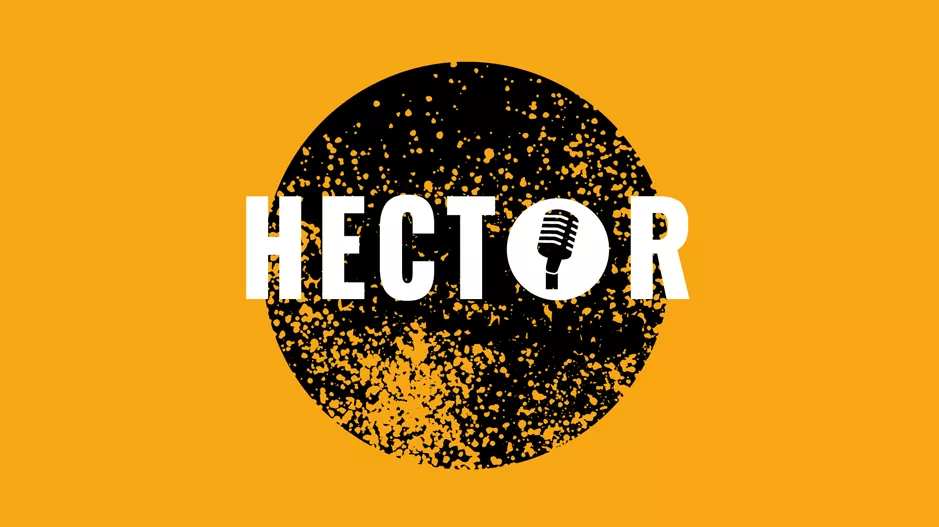The podcasts of the HECTOR project have been available since the beginning of February 2022. The issues addressed are discussed with scientists from UNamur. A total of fifteen researchers have taken the floor in each of these episodes to provide their vision on these scientific and social issues.
The origin of this project? An archive that was lying dormant at the BUMP: "Hector Lebrun's documentation was bequeathed to the Moretus Plantin University Library at the end of the 1990s," explains Céline Rase, the history researcher behind the project.

Each episode lasts about 40 minutes. The voice-over is provided by Céline Rase. At the microphone of the Audiovisual Service studio, which helped the historian to produce these podcasts, various members of UNamur took turns playing the role of Hector Lebrun, Eric Bernagou plays another 19th century scholar and François-Xavier Fievez a rather sexist American intellectual.
Researchers and professors from several faculties also gave interviews and shared their analysis: Anne Roekens (Department of History) and Yves Poumay (Faculty of Medicine), who are also co-directors of the HECTOR project, as well as Pierre Assenmaker (professor of language and philology), Xavier De Bolle (biologist), Roxane Dewrée (research logistician), Julie Laloy (professor of pharmacy), Dominique Lambert (philosopher of science), Jean-Jacques Letesson (biologist), Nicolas Michel (historian), Eric Muraille (biologist), Martine Raes (biologist), Frédéric Silvestre (biologist), Johan Yans (geologist), Coline Leclercq (gender and diversity attaché), Nathalie Grandjean (philosopher), Anne-Sophie Collard (professor of information and communication science).
These exchanges will be of interest to those who are passionate about history, science and social issues!
Listen to them (in French) here... On Spotify - On Deezer - On Podcastaddict
The HECTOR podcast episodes
Episode 1: Women Scientists
In his scientific writings, published at the dawn of the 20th century, Hector Lebrun mentions only three women, while at the same time he refers to 171 male colleagues. Why were there so few women in science 120 years ago, and why, when they did exist, did their names not go down in history? In this episode of the HECTOR podcast, we will look at the place of women in the world of research, we will go back to an era still marked by strong resistance to women's careers, we will distinguish between science done by women and feminist science; we will see that many things have changed. But not enough.
Episode 2: (Con)science
At the end of the 19th century, Hector Lebrun tracked down and then cut open hundreds of batrachians before 'slaughtering' them to study their genitalia. He belonged to that generation of scientists who, by experimenting on animals, understood the functioning of the body and of diseases. So why, if it has won so many victories against infectious agents, does animal experimentation have such a bad reputation? In this episode of the HECTOR podcast, we go back to a time when animals were dissected, dead or alive, without any ethical consideration. We'll see how legislation has gradually regulated scientific research, often for the better, but, researchers fear, sometimes for the worse.
Episode 3: The Origin of Man
How did life, humanity, how did it all begin? The question of the origins of life has occupied scientists since the dawn of time. Hector Lebrun is one of those who have tackled this issue in scientific and philosophical terms. In this episode of the HECTOR podcast, we go back to the time of the Flood, the dinosaurs and Darwin. We will touch on the ancient tensions between science and faith and ask how creationism still survives scientific evidence today. We will note the extent of the discoveries made over the centuries and barely glimpse the at least equally great extent of those still to be made...
Episode 4: The experts' view
Hector Lebrun is a biologist, but that does not prevent him from taking part in the philosophical and political debates of his time. He gave his opinion, questioned, criticised; he embodied the archetypal intellectual of the early 20th century, unconstrained by the over-specialisation of knowledge, comforted by the aura of respectability enjoyed by academics at the time. A century later, the profile of experts has changed. But how? In this episode of the HECTOR podcast, we will examine the legitimacy of experts over time. We will look at what sometimes pushes them, what often holds them back, to invest in the public sphere. We will ask ourselves: "But what is the value of the scientific word?
This research and heritage development project was made possible thanks to the support of the Fondation d'utilité publique Institut Moretus Plantin.
